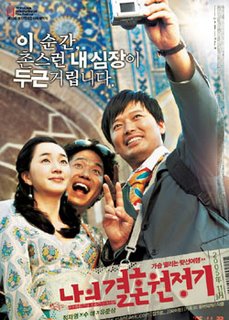I have recently run across several sources suggesting that the attacks of 9/11 were somehow an inside job, staged by our government to keep us in a state of fear. I would like to address this idea from my own perspective, which is that the attacks were indeed a surprise staged by Al Qaeda militants intent on harming the United States.
One argument is that various people predicted the attacks. Unfortunately, while some of these predictions were prescient, none of them were specific enough to suggest any real knowledge. That terrorist attacks on the United States — and on the World Trade Center in New York — were likely was a matter of public record; after all, the World Trade Center was bombed by Al Qaeda-associated militants in 1993, and Al Qaeda had staged subsequent attacks against the USS Cole and US embassies in Tanzania and Kenya. There is nothing startling in someone having predicted that this pattern would continue to escalate, nor in arguing that the US response to a serious attack, if and when it came, would be to invade Afghanistan and go looking for Al Qaeda in caves.
A bit more prescience would be needed to imagine the War on Terror as it came to pass, complete with an invasion of Iraq and the installation of mechanisms for endless war and social control. A relatively small number of people did indeed make such predictions, pulling together ideas from Orwell and suspicions that Bush Jr. wished to complete Bush Sr.’s work in Iraq. These predictions turned out to be the right ones, as opposed to the many, many other predictions made by knowledgeable and thoughtful people. This doesn’t prove foreknowledge, but only that the events of 9/11 and its aftermath were not so utterly unlikely that no one could have guessed.
There are other signs and portents trotted out to demonstrate that the 9/11 attacks were somehow an inside job. The difficulty with believing any such scenario is that it would require that the Bush administration accomplished an incredibly complex, spectacularly criminal covert operation with such precision and efficiency that no one in the United States or elsewhere — and that includes a lot of very pissed of NYPD and FBI and Pentagon people — ever managed to find anything like incontrovertible evidence of their involvement. This would stand in contrast to the spectacular incompetence of the administration in just about everything else it has ever tried. I needn’t go through the litany of failures here, but it’s worth nothing that the efforts at secrecy — around the CIA black sites, the outing of Valerie Plame, the inaction on Al Qaeda before 9/11, the rapid decision after 9/11 to focus on Iraq — have been consistently ineffective. The idea that there is somehow a darker, more sinister, more competent force behind the overt bumblers in power is in some ways reassuring, but it is far less plausible than the widely accepted scenario on 9/11, which is that a small band of fanatical terrorists pulled off an attack that turned out to be surprisingly murderous.
So why haven’t we been attacked again? A weird inversion of the idea that the Bush administration attacked America on purpose is the idea that they have subsequently not attacked America on purpose, and that this proves Al Qaeda is really a hoax. The lack of a terrorist attack since 9/11 is considered evidence that the Bush administration must have staged the first one, because our security couldn’t possibly be good enough to thwart a second attack for this long.
For one thing, this argument demands that we believe our security forces are incompetent — the same security forces that secretly staged 9/11, remember, and covered it up. It also demands that we somehow ignore or explain away the bombings in London, Spain and Bali, which are evidence that Al Qaeda is indeed hard at work. Is Al Qaeda in league with the Bush administratioin? Is that why they’ve attacked elsewhere but not here? This seems highly unlikely. The War on Terror isn’t going so well, nor is the Bush plan for government control through endless war. Bush and his party would be far better served by the capture of Osama bin Laden than by getting caught making friends with him.
The current administration has done more than enough horrifically bad business that we know is true: thousands of American fighters killed and wounded, hundreds of thousands of Iraqis killed, the sanctioning and use of torture, the indefinite detention of thousands of innocents, the gutting of American environmental laws while we look the other way on global warming, the devastation of our global image and influence, the incompetence on North Korea and Iran, the undermining of the Israeli-Palestinian peace process, the utterly bungled response to the destruction of a major American city, the corruption and scandal at every level of government.
The Bush administration is bad enough. There is no need to give them extra credit.


 There is a beautiful shot about a quarter of the way through the South Korean film
There is a beautiful shot about a quarter of the way through the South Korean film 